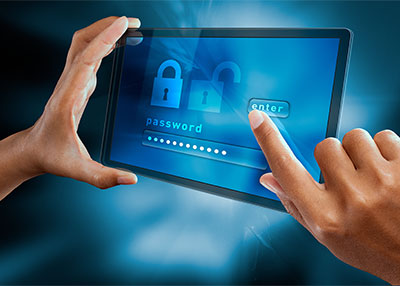I think over the past few years we, as a population, have heard “create a strong and unique password” so many times that we are numb to it, much like hearing a car alarm sounding in a crowded parking lot. You may look over, mumble that it’s annoying, but that’s usually about it; police are hardly ever called.
 Like the car alarm, when used correctly, the password, too, is a very important security tool. In fact, there is an art to creating a password:
Like the car alarm, when used correctly, the password, too, is a very important security tool. In fact, there is an art to creating a password:
Step 1: Think of at least a 12-character password or longer. (How in the world are you going to remember that?!)
Step 2: Avoid names, places and dictionary words. (What’s left?!)
Step 3: Blend it all together by using variations of upper and lowercase letters, spelling, numbers, punctuation and special characters. (Too much trouble!)
Here’s an example using this password method: bre7E$ret98:!aZ
(Warning: Do NOT use this as your password; it’s NOT unique!)
Super simple to remember, right? Especially when security experts recommend that each and every one of our accounts should have a different password.
I don’t know about you, but I’m already frustrated, like fist-banging-on-desk, brain-exploding, give-up-and-just-use-1234-as-a-password frustrated! This is where password managers come in to save our sanity! Simply put, a password manager is a piece of software that organizes passwords and PINs via a file that stores and encrypts all the data. The software may also work as a form filler, automatically inserting user names and password data into forms. The only requirement for you is to remember ONE complex password, called the master password. Easy!
Coming tomorrow, July 11, 2014, will be 7 password manager Apps for Android and iOS that includes the number of stars, reviews, my opinion and a detailed description of each! You won’t want to miss this!
Until then, here's a tip: When shopping for the best password manager, keep in mind that 256-bit encryption, which is military-grade, is the highest available at this time.